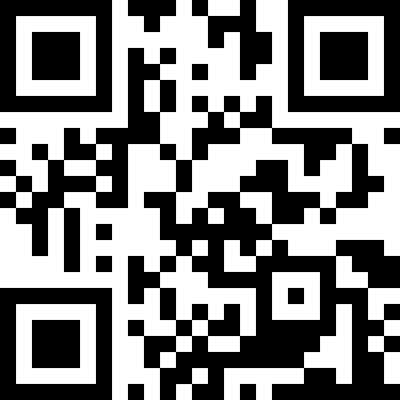Example Render QR Code
From BoofCV
Jump to navigationJump to search
This example shows how a QR Codes can be rendered into an image. Its easy to adapt the approach here for just about any file format.
Example Code:
Concepts:
- Fiducials
- QR Codes
Relevant Examples/Tutorials:
Example Code
/**
* A simple API is provided for creating your own QR Codes. Used extensively in BoofCV for testing purposes.
* It's also easy to extending the rendering tools to support other file formats.
*
* @see boofcv.alg.fiducial.qrcode.QrCodeGenerator
*
* @author Peter Abeles
*/
public class ExampleRenderQrCode
{
public static void main(String[] args) {
// Uses a flow pattern to specify the QR Code. You can control all aspects of the QR
// like specifying the version, mask, and message types or let it select all of that for you.
QrCode qr = new QrCodeEncoder().
setError(QrCode.ErrorLevel.M).
addAutomatic("This is a Test ん鞠").fixate();
// NOTE: The final function you call must be fixate() that's how it knows its done
// QrCodeGenerator is the base class with all the logic and the children tell it how to
// write in a specific format. QrCodeGeneratorImage is included with BoofCV and is used
// to creates images
QrCodeGeneratorImage render = new QrCodeGeneratorImage(20);
render.render(qr);
// Convert it to a BufferedImage for display purposes
BufferedImage image = ConvertBufferedImage.convertTo(render.getGray(),null);
ShowImages.showWindow(image,"Rendered QR Code", true);
// You can also save it to disk by uncommenting the line below
// UtilImageIO.saveImage(image,"qrcode.png");
// WARNING! This rendered image lacks the white border which is required to be a compliant
// QR Code. As of this writing BoofCV's implementation might not be able to handle
// this image unless you add a white border.
}
}
